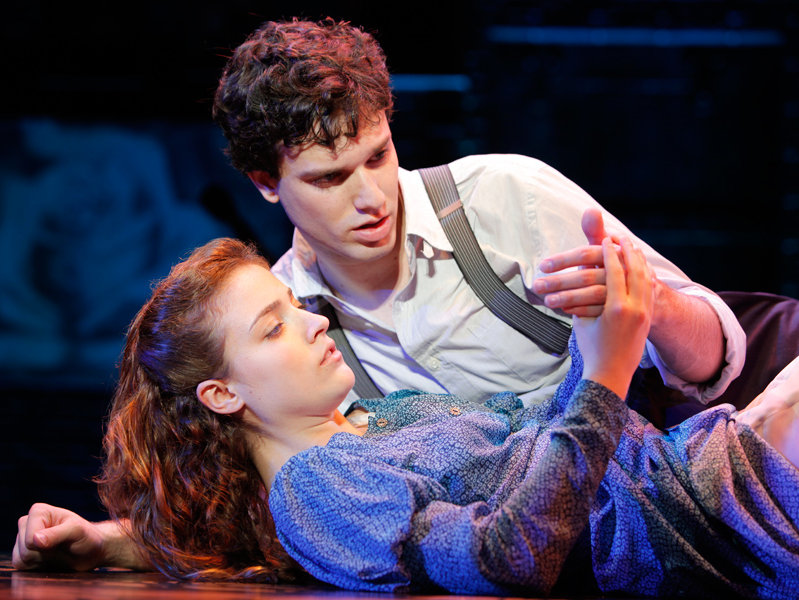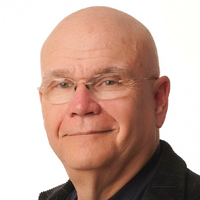When the musical "Hair" burst into the public consciousness 41 years ago, Broadway audiences heard lyrics unlike anything ever sung before in those hallowed old theaters. Four songs into the show, a sweet male voice crooned the virtues of various sex acts in a tune titled "Sodomy."
The entire culture was ablaze with anti-war protests, flower power and the sexual revolution, and a tribe of young actors playing hippies on a stage that once supported Basil Rathbone and Art Carney blended into the tumult of the times. The political and cultural pendulum was as far left as it goes in this country. Many people thought "Hair" and its celebration of free love was cute.
By 2001, that pendulum was swinging to the other extreme, and another cutting edge new musical about young people and sex was finding it much more difficult to get a New York production. Close friends Steven Sater and Duncan Sheik had been working on "Spring Awakening" for two years, and if they weren't quite ready for prime time, they knew they needed to get the show on its feet and in front of a paying audience. The project had begun on New Year's Day, 1999, when Sater, a poet, playwright, screenwriter and lyricist, had suggested to singer-songwriter Sheik they write a musical together.
"Duncan made a face," Sater recalled in a recent phone interview. Sheik questioned whether musical theater was relevant to the culture at large, according to Sater, who immediately thought of a controversial 19th century German drama as material for a substantive contemporary musical. Fast forward to a June night in 2007, when "Spring Awakening" won eight Tony Awards, including best musical, best original score and best book. The show ran on Broadway for more than two years, and a national touring company will open a weeklong run of it at the Marcus Center Oct. 6. Getting to Broadway and now the Marcus Center wasn't easy.
While "Hair" reveled in sex, "Spring Awakening" broods about it. Rather than being coaxed to join in, the audience is provided a window into the inner angst of teenagers wrestling with the mysteries of life, love and sexuality. The musical is based on Frank Wedekind's 1891 Expressionist play of the same name about a group of adolescents at a repressive religious boarding school. Punches are not pulled, as masturbation, abortion, sadomasochism, gay exploration and suicide are addressed.
Bertolt Brecht credited Wedekind with being his master, and "Spring Awakening" is far from being prurient, but the drama was considered scandalous, and when it was staged was subject to censorship all the way into the 1960s. "That play is so full of heartaches, rebellion and longing, it touches the troubled hearts of youth around the world," Sater said in the phone interview. "It is a scathing indictment of home, church, school and society at large in thwarting youth. Seeds of tragedy come out of one mother's decision to keep her daughter in the dark about sex."
Sater said turning Wedekind's play into a musical was an artistic impulse. "I always thought of the play as being musical in nature. I could hear Duncan (Sheik's) music in it." Numerous changes were made to the original plot. Consensual sex replaced a rape, and Sater introduced a love story with a Romeo and Juliet dynamic. The musical's book is much more life affirming than the dark play.
Much of "Spring Awakening's" success comes from Sheik's haunting score of lyrical pop ballads and angry alt-rock, and a marvelous theatrical device that could be called a collision between the late 19th and early 21st centuries. The action is set in the former, in a school gymnasium with the characters wearing 19th century costumes. But when a song is to be sung, the singers step to microphones, face the audience and perform in 21st century concert style. It sparks "Spring Awakening's" edgy energy.
Rather than accomplishing the customary goal of a song in musical theater, advancing the story, the tunes here are internal monologues that reveal the thoughts and feelings of the character who is singing. "I have never been comfortable in musical theater when someone sings a song and then pretends they just didn't sing a song," Sater said.
New York theater producers were skittish about the frank subject and blunt approach, and then 9/11 occurred, and any chance of "Spring Awakening" finding a stage in the Big Apple evaporated. Finally, an off-Broadway production in 2006 launched the show to Broadway and beyond.
"I was naive and I didn't think about it (the potentially controversial nature of the musical)," Sater said. "I just went ahead with what I wanted to do. There were big theater budget cuts in the wake of 9/11, and no one wanted to produce anything with complex subject matter. It was thought that people wanted just entertainment. We met with great resistance along the way. We fought really hard to maintain the integrity of the show."
Sater said that didn't mean he, Sheik and director Michael Mayer didn't make changes. The musical has had some post-Broadway tweaks for productions in London and the road company we will see here. "We are always looking to improve the story telling," he explained.
Damien has been around so long, he was at Summerfest the night George Carlin was arrested for speaking the seven dirty words you can't say on TV. He was also at the Uptown Theatre the night Bruce Springsteen's first Milwaukee concert was interrupted for three hours by a bomb scare. Damien was reviewing the concert for the Milwaukee Journal. He wrote for the Journal and Journal Sentinel for 37 years, the last 29 as theater critic.
During those years, Damien served two terms on the board of the American Theatre Critics Association, a term on the board of the association's foundation, and he studied the Latinization of American culture in a University of Southern California fellowship program. Damien also hosted his own arts radio program, "Milwaukee Presents with Damien Jaques," on WHAD for eight years.
Travel, books and, not surprisingly, theater top the list of Damien's interests. A news junkie, he is particularly plugged into politics and international affairs, but he also closely follows the Brewers, Packers and Marquette baskeball. Damien lives downtown, within easy walking distance of most of the theaters he attends.



